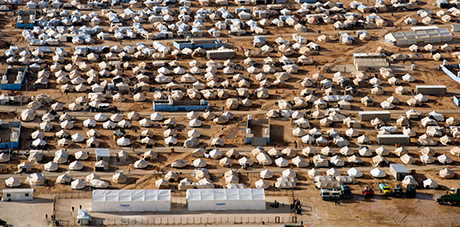Over 450 million people are estimated to be suffering from mental illness globally—three quarters of whom live in the developing world—making mental health issues one of the the leading causes of disability on the planet. Yet mental illness remains steeped in stigma with its complex root causes often misunderstood, making care difficult to deliver. As this gap in global public health care is increasingly evident, a growing number of multi-stakeholder approaches are emerging that aim to promote greater public awareness, fund research, and create new programs and services.
The Mental Health Innovation Network (MHIN), with the support of the World Health Organization’s Department for Mental Health and Substance Abuse and the London School of Hygiene & Tropical Medicine’s Centre for Global Mental Health, is one of these organizations. MHIN has as its mission the development and implementation of effective mental health innovation through learning, linkages, knowledge sharing, and the leveraging of collective resources. Created as an online platform and knowledge network, MHIN provides a community for mental health practitioners, policy-makers, service users, researchers, donors, and other stakeholders that can share information and resources to improve the quality and coverage of mental health care. There are now nearly 100 member organizations, including the Public Health Foundation of India, the Yale Global Mental Health Program, and the Centre for Global Mental Health.
The Syrian Telemental Health Network, a member of the MHIN community, is an operational and delivery network responding to the need for mental health support in the refugee camps around and within Syria. Psychological issues stemming from life in conflict areas are particularly important to address, as they are expected to have significant negative impacts for generations to come. Transgenerational trauma can greatly increase a regions’s vulnerability to both future conflict and low economic performance. Although it is difficult to provide even rudimentary mental health services in a conflict situation, the Syrian Telemental Health Network connects institutions and NGOs around the world to help deliver mental health consultations, education, and training to enhance capacity-building efforts for health care workers in the Syrian conflict setting. Initiated by a number of professionals from North America, the network has built a secure platform that allows participants to safely share case information over the Internet.
The Movement for Global Mental Health (MGMH), an advocacy network, has been working since 2007 to improve worldwide services for people living with mental health problems and psychosocial disabilities. Relying primarily on volunteerism and seeking collaboration, the movement has grown to include 200 institutions and over 10,000 individuals. Members include individuals and families affected by mental health problems, health care providers, activists, decision makers, and researchers. The group advocates for, and supports the development of, scaled-up treatments for mental disorders; protecting the human rights of those affected and increasing research in low-and middle-income countries. At the moment, members of the MGMH are focused on ensuring that mental health issues are included in the UN’s post-2015 development agenda and, specifically, the emerging Sustainable Development Goals.
Although mental health has historically been difficult to address, it is becoming an increasingly important issue for global problem solvers and an area for which networks and technology offer significant potential. These networked approaches can often leapfrog traditional boundaries and overcome cultural limitations on discussing and addressing mental health issues. By connecting individuals in online communities, the Internet allows the individuals suffering from mental illness and their communities to seek and access services without stigma and with reduced expense. Mental health practitioners and innovators are able to use their work as a model to scale and help individuals around the world. As the impact of these programs is felt, there is an increase in awareness and support of these profoundly individual issues, creating optimism that sufferers of mental illness will no longer be marginalized.


